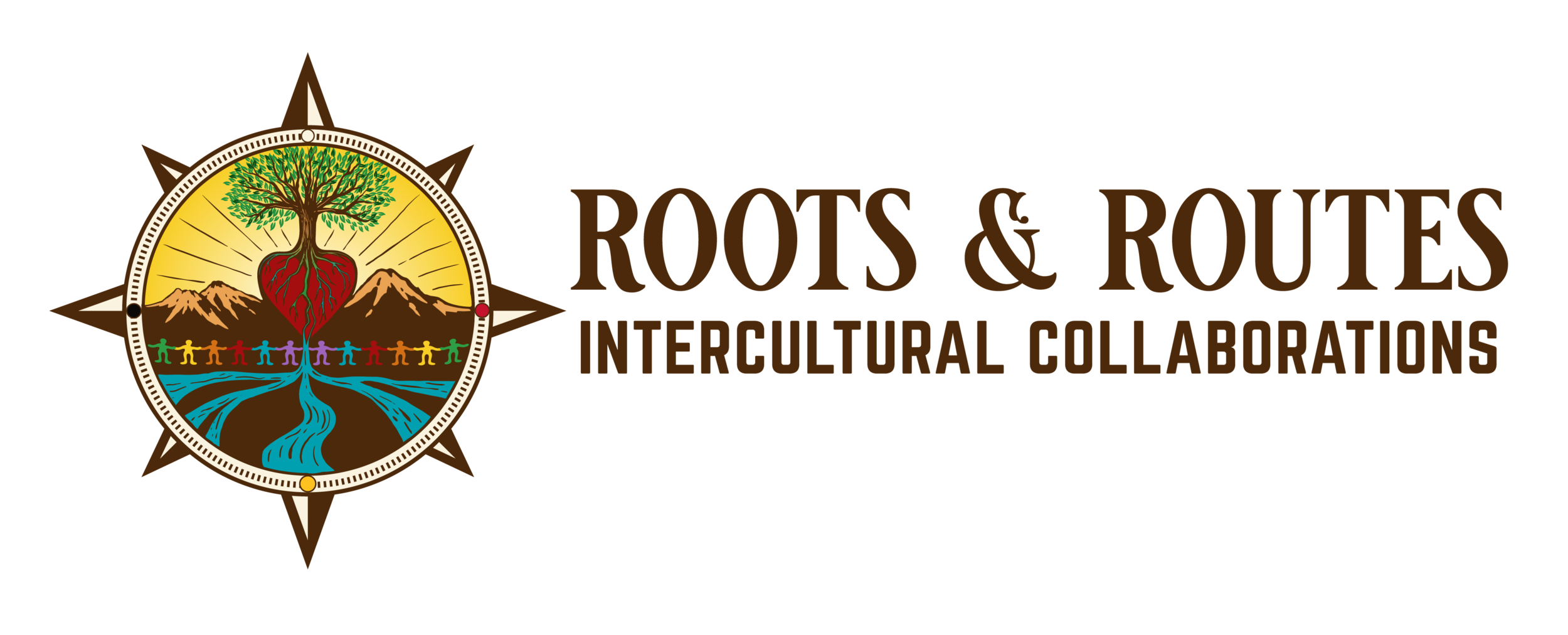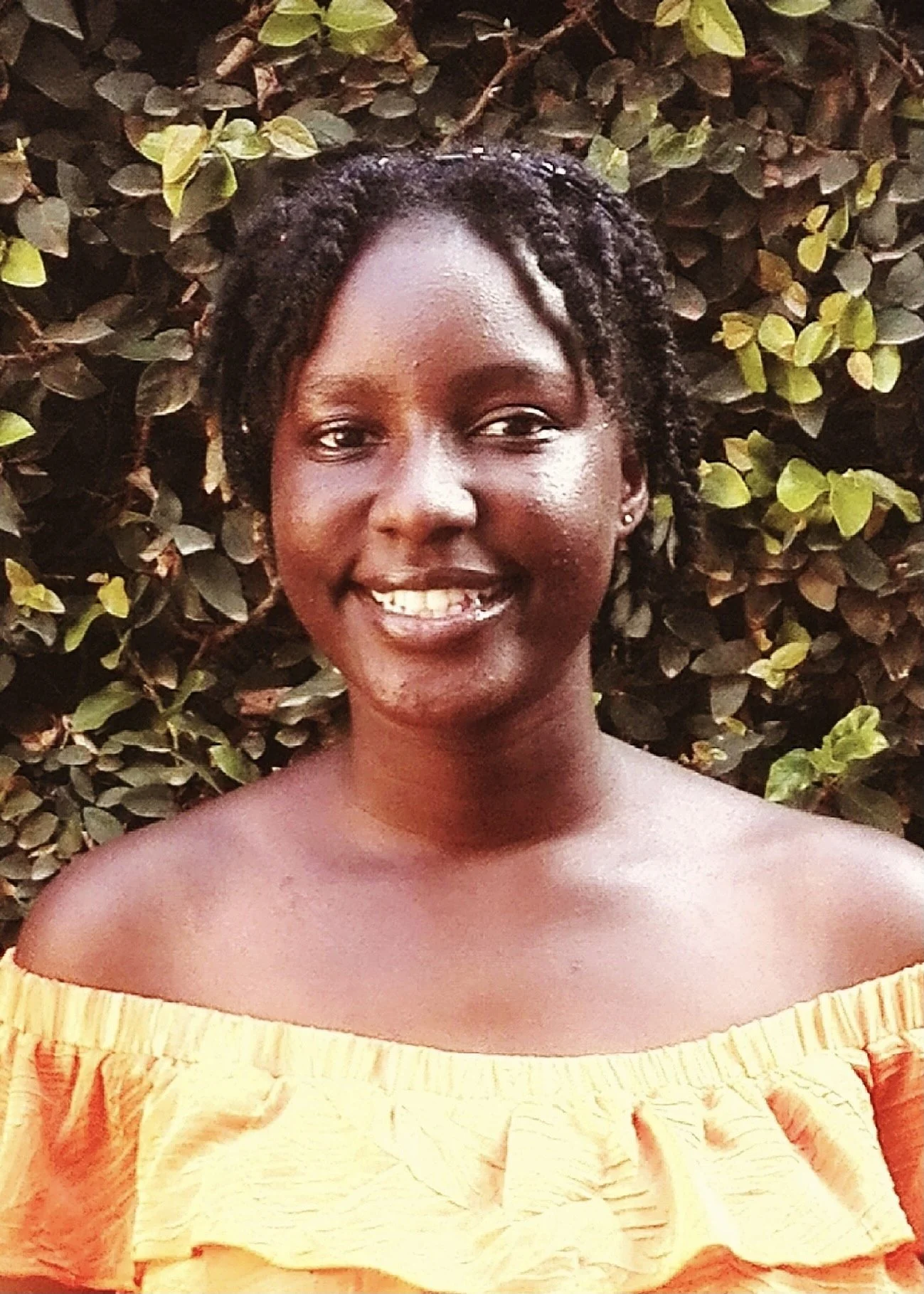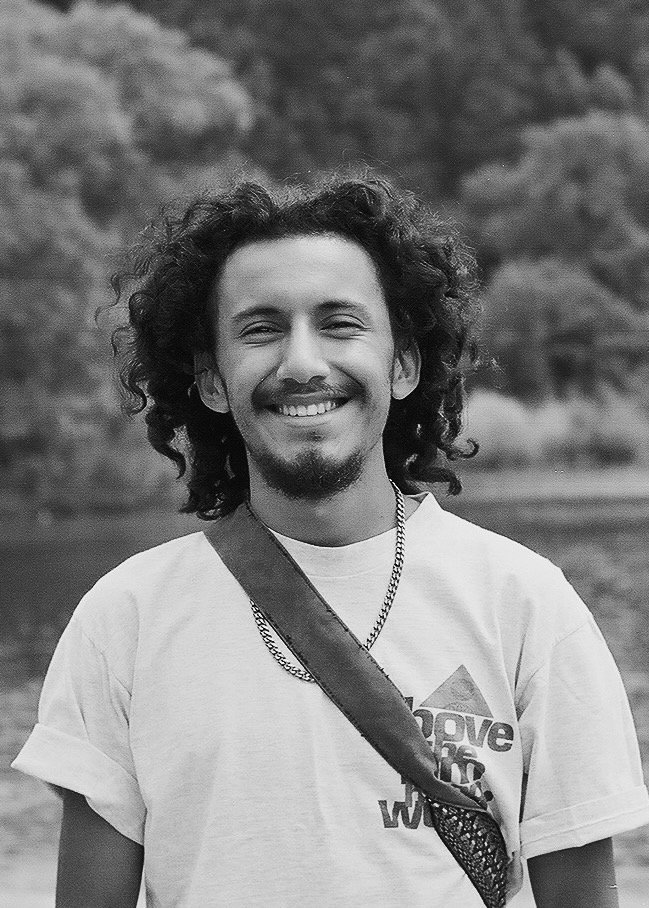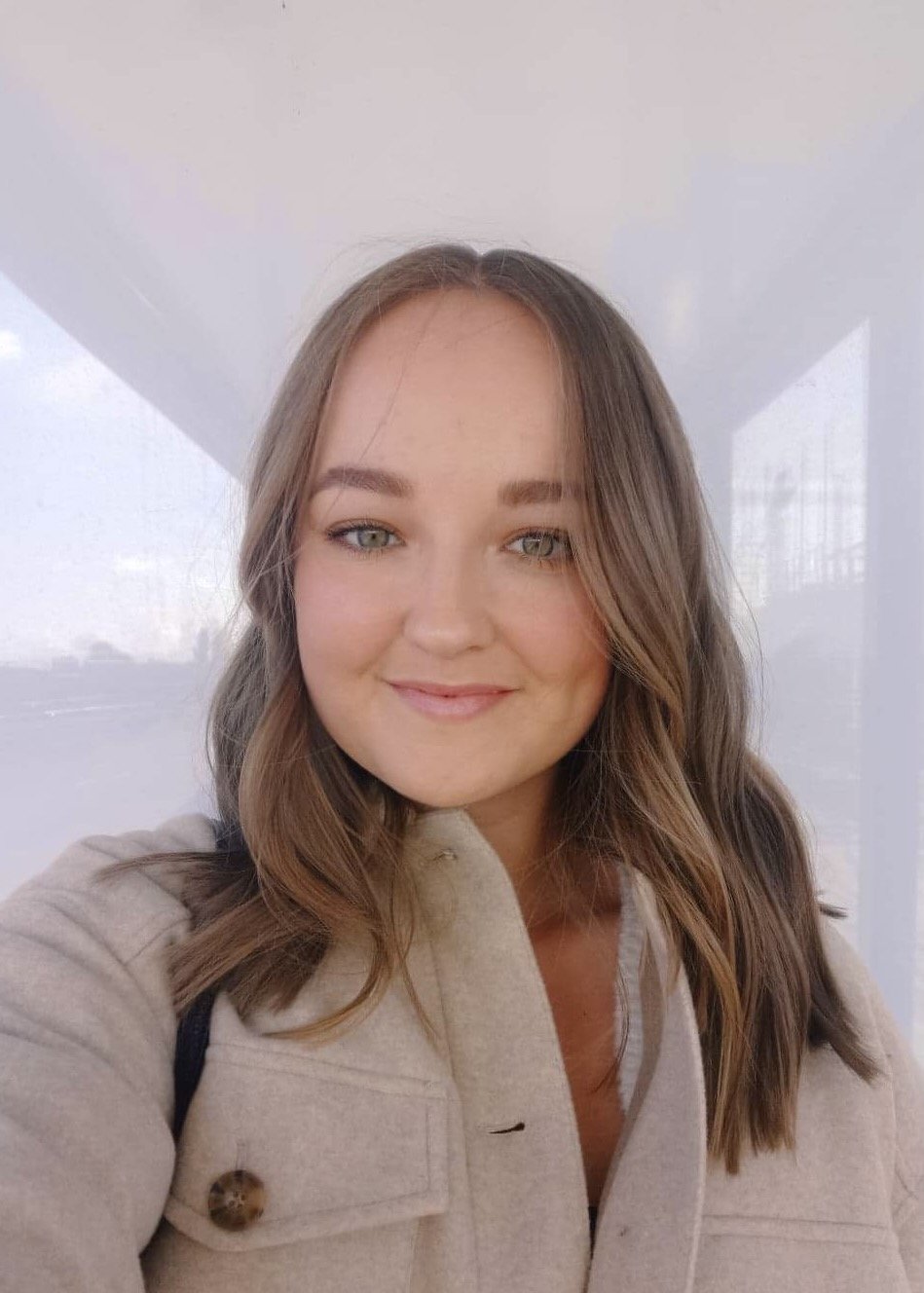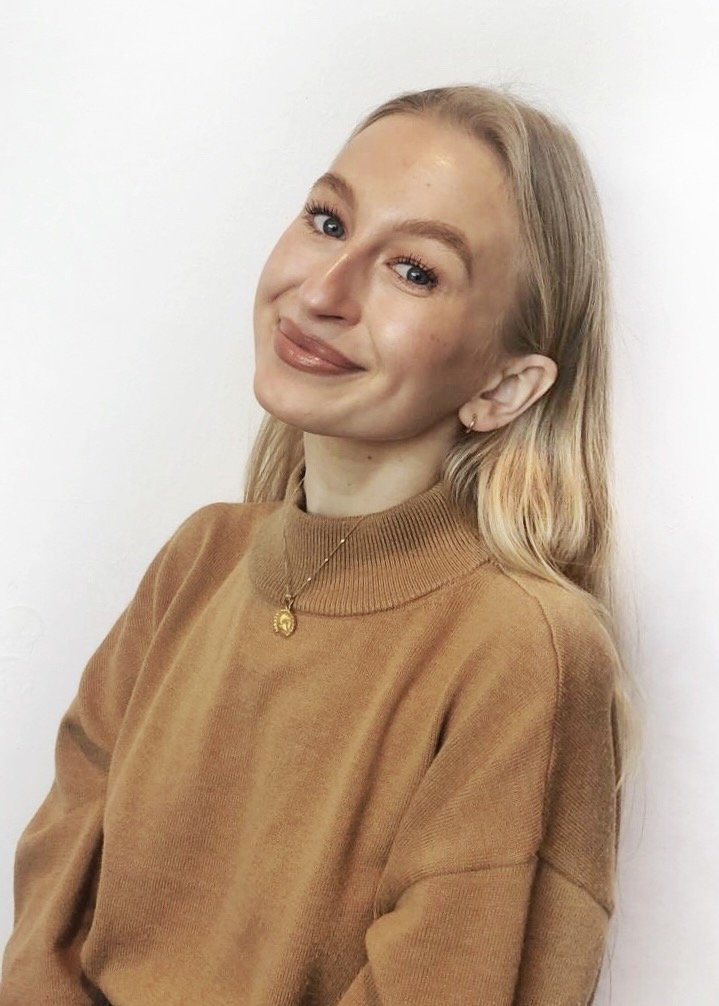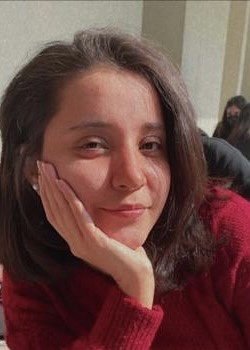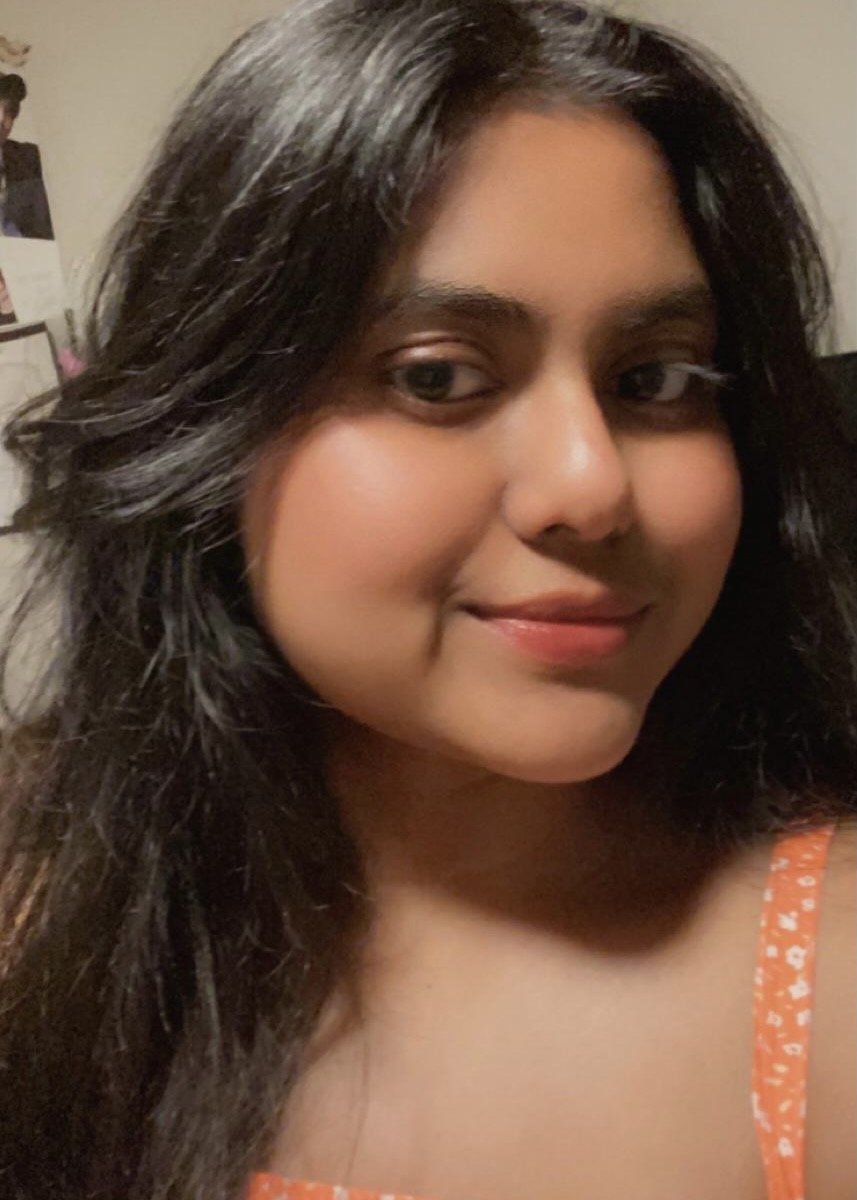Youth Visionary Collective Storytime: Reconnecting to Our Roots & One Another
Storytelling brings us back to our roots—to the places we all feel safe and comfortable in, to the people whom we hold dear to us, and to the traditions which were passed down to us from our families. Our ancestors’ ancestors told stories, and those form part of who we are today. Storytelling is still a common way of sharing information today and teaching new skills to the children, so that they can be educated about their particular cultural way of being in the world. This goes for all of us no matter where we call home.
The Youth Visionary Collective (YVC) came together to share stories on November 7, 2021, one of our weekly meetings. The YVC community shared their experiences with, and had a chance to get to know one another by venturing into each other's' favorite memories. As we take part in the Roots & Routes activities as interns, the stories passed around were crucial for us to learn a bit more about our community members’ personal life experiences. As our meetings came to a close, we felt more like family.
The Youth Visionary Collective (YVC) is an international community of interns that make up the heart of Roots & Routes IC. Resourcefully emerging out of a global pandemic, our diverse youth seized the opportunity for mentorship, engagement, and conversation between community leaders and youth around the world.
Roots & Routes works with complex issues that transcend borders, impacting communities around the globe in distinct ways. It is therefore critical to come together beyond cultural differences to exchange stories of how we grew up and how our lives have been affected, while also building on the diverse ways cultural peoples tend the land. Thus, the interns are a diverse community of youth who work with Roots & Routes IC to re-story our relations to one another and to the Earth.
Roots & Routes has four branches, or approaches to our programs: Re-storying, Restoring, Revindivating, and Reciprocating. Through this Community-led Education and Media focus, we re-storywhat it means to be human and all our relation. Through our YVC storytime, we have been able to re-story what happens in our lives, thus transforming our future pathways of how we experience the world.
“Storytime has enabled us to open up and learn more about each other collectively as a team.”
Emilee McBryde is from Corvallis, Oregon, USA. She graduated from Oregon University with a double degree in Cultural Anthropology and Sustainability and a minor in Spanish.
When I was a child, I loved fairies very much. I would read story books about them and make fairy houses with my grandmother in her beautiful garden. She would write little notes to me, leave me little gifts and place them in the fairy houses, and this always made me so excited because I thought that the fairies were actually listening to me.
When my brother passed away, my grandmother built a special place in her garden for him, and there were always many butterflies around that place. Ever since then, my family and I have associated butterflies with him, and even if I know that fairies are not real, the butterflies are the closest thing we have to them.
This experience instilled in me a healing power that working with the land also has. When I have a bad day simply taking a walk can lighten my mood. The land is always going to be a good thing and something that will always remind me of my grandmother’s beautiful garden and all the memories we shared there.
Neena Kalazani, is from Kampala Uganda, and she is a college student studying history, economics, divinity and sub maths at Gayaza High School. She is aspiring to become a lawyer.
My grandmother lives in a village outside the capital city. I always enjoyed it whenever we would visit her because she is a simple and very loving lady. My grandmother lived very far away from Kampala, where we lived, and so we would visit her village mainly on Christmas or Easter, or when we had a free weekend and were able to go there. She usually does not have many material things to give, but she will always make you feel loved when you come around.
One of the memories I vividly recall are of an enormous mango tree which was in her compound, and it was very odd looking. It was honestly quite scary to me as a child, and my grandmother kept on telling us all these scary stories about that tree, how all sorts of scary and evil creatures like wizards lived in there.
She would tell us these stories as we ate by the fireplace at night, and we would all get very scared to go to bed. But my grandmother also told us that she was the only one who could chase off those scary things, and as children, we would always want to sleep next to her at night. Looking back at this made me appreciate just how much my grandmother loved us and always wanted to protect us.
Joshua Carmenatte is from Des Moines, Iowa, USA. He is an Agriculture and Society major at Iowa State University. He likes drinking coffee and shooting film photography. His passions are helping to feed people from his neighbourhood. He loves kids and works at an afterschool program where they do crafts and games.
One day my dad woke me up on a Saturday morning and told me that we were going to work. It was quite puzzling to me, because I was only in third grade and it was 8 o’clock in the morning which felt like around 4 am to me at that time.
We made an hour-long trek to a vineyard which was as big as a football pitch and he handed me a pair of clippers and a bucket. For the first couple of hours he taught me how to clip the grapes into the bucket and go down the line. He told me that he’d be back for me at 12 o’clock for lunch. Later that day after working, as we sat in his car, he told me that the reason why he had brought me back there was to teach me hard work and discipline.
That moment was very key to who I am today because I am the only boy in four sisters, so I have always had to use my hands to work and do the male jobs in the family. My father and mother were immigrants from Guatemala and the work- and discipline ethic have always been in them and I am grateful that I was able to get that work-ethic too.
Eleonora Moen is from the north of Sweden, and she is a graduate student in Development Studies at Lund University in Sweden. She is passionate about issues around marginalization and climate change, as well as making this planet more just and sustainable for all living beings.
My favourite place on Earth is my family’s summer house in Northern Sweden. It is located in an old fishing village of historical significance, near where my paternal grandmother lived all my life and my father grew up.
Our summer house is on an island which over the past twenty years became a peninsula. It is a tiny, traditional house made entirely of thick logs which was built by my paternal grandfather and my father’s maternal grandfather and both my father and I grew up there. Almost every summer of my life, I have spent there. It has been passed down from my grandmother to now my father and aunt. It has no water or wifi, only electricity and it doesn’t have a proper toilet. We would use the outhouse and I would always bathe and brush my teeth in the sea overlooking the sunset, which is part of its charm. Because of this we spent a lot of time in nature when we would go there.
I would go swimming, sail on my father’s uncle’s boat, go fishing for tiny fish for the cat, as well as hiking. We have come across moose, rattlesnakes, deer, hares, and seals. That cabin is like a little slice of heaven for me. I have been struggling with the sense of what is home to me lately, but if someone asks me now which place I call home, that cabin is it. That is where I have my roots, and it is a huge reason why I love nature so much because I have spent all my summers enjoying nature to the fullest.
Unna-Maija Matinlauri is from Helsinki, Finland, but is currently studying at Lund University in Sweden. She has a Bachelor’s in Peace and Conflict studies and she is currently studying a Master’s in Global studies.
Christmas in Finland is quite a big celebration because we believe that Santa Claus comes from Finland. Growing up, Christmas was such a huge thing for me, and I would always wait for Santa six months before Christmas. If I did something bad, they would always tell me that Santa’s secret helpers would see me and I better act properly. So one Christmas when I was a kid, my parents were unable to get a Santa so instead when my mom, brother and I went to take the dog for a walk, I was so worried that there would be no Santa Claus that year.
However, my dad put on a Santa costume and got a bag, climbed our neighbour’s house and started waving at us, and I felt that was the coolest thing that had ever happened to me. Santa may not have come that year, but when we got back home, we found a map to find gifts hidden around the house. That was the best Christmas ever for me.
Chinomnso Onwubiko is from Nigeria but lives in Cape Coast, Ghana. She is currently doing her Ph.D. at the University of Cape Coast studying coastal ecosystems to reduce the impact of hazards. She loves reading, watching movies, taking walks and spending time with friends. She admires the team work and opportunity to learn and express at R&R.
My mom instilled in us this idea of what a girl should be like as we grew up, which included knowing how to do housework like cooking, cleaning the house and behaving in a certain way. This shaped a lot of who I am today and sometimes when I look back I am grateful that she did that. Even though I am getting to know that it is not just about the girls, and that whatever a girl does, a boy should also be able to do, I am grateful that she instilled that into my siblings and I. I would like to pass this down to my children, but instead I will involve both the girls and the boys.
Edwin Magana-Lopez is from East Palo Alto, California in the United States. He recently graduated from UC Santa Cruz in Environmental Studies with a concentration in Global Environmental Justice. He is very involved with his community in the South San Francisco Bay Area, uncovering and teaching the history and environmental injustices that continue in marginalized neighborhoods there.
Both my parents are Mexican immigrants. My dad worked as a meat and seafood deliverer through the Bay Area and my mom would clean houses. The community where we lived in is a working class community that has entirely shaped my perspective of how I look at the world today.
From Santa Cruz, I started developing my ideas on environmentalism and then took a class with Juli Hazlewood, which has been one of the most informative classes in my entire learning experience as a person. This was because I was applying the ideas of Indigeneity, decolonizing myself and environmentalism to my life and how I approach tasks and situations today.
I try to analyze things through colonization through my own lenses of Catholicism and also from my own upbringing as well. It has been a lot of reading, learning from other people and talking with other people to get their perspectives too.
“Life is continuously teaching you things about yourself and how to improve.”
Grace Holling is from Edinburgh, Scotland but is studying Geography at the University of St. Andrews on exchange at the University of Bergen, Norway. She loves film making, hockey and adventuring.
I think aspects of community, and understanding identity helps me in every aspect of my daily life, and these connections are very important to me. I remember a lecture I once had on climate change. I walked out of that lecture and felt the urge to cry.
The lady who was speaking to us was very charismatic in the way she spoke. It was upsetting to hear because she was telling us how doomed we are but it was also important to hear that perspective as well. I think the important thing in life is taking the time to listen to these different perspectives and understanding different people.
I have noticed, especially in my time of studying, just how linked everything has been for me, and how I felt those connections. I feel like I have experienced that in real life, which brings me a lot of joy and satisfaction. That is one of the reasons why I love Geography because I can see my studies in real life, both the physical and human aspects and that has been a personal achievement to me.
Inshella Fatima is from Lahore, Pakistan. She is a student at the Pakistan Institute of Fashion and Design doing her Bachelor’s in fashion merchandising. She is a member of the Aga Khan education board and loves calligraphy and performing in theatre.
Back in the day, I was an introvert. One time I got this theatre opportunity to perform in Portugal, and after competing at local and national competitions I was given a chance to perform at a higher level. It was always necessary for me and other theatre performers to get indulged in the whole character. One needed to learn about that character’s traits and habits, and immerse oneself into the whole character in order to perform.
After doing that, and after my performance,- I realized that it was necessary to accept yourself and be kind, to be a true human being. I got a chance to get out of my introvertedness and start interacting with people. Through that, I also started to explore internships outside of my country and got a chance to come across Roots & Routes and meet all of the interns.
I realised how human beings are actually working hard to make this planet a beautiful place for all other human beings and for the planet itself. I am very thankful to have joined this community because I was not very aware of Indigenous communities aside from the word itself. After joining this organization, I have learnt a lot from it.
As an individual, I also belong to an Indigenous group of people called the Brusho people. Most of them are conservative and do not really know about the rights they possess, so after learning about Indigenous communities, I want to start working for my own community as well.
Veronika Juylova is from Ashland, North Carolina, USA. She is a senior at Athens Drive Magnet High School. In college, she hopes to major in pre-law and minor in physics. She enjoys doing martial arts and cooking, and she really enjoys rice and kimchi.
I do Korean martial arts, it is taekwondo and I am a second degree black belt so I have been doing it for a while, and when I first joined it I felt like it was not my thing. My parents would literally drag me to class every single day. There were many good reasons why I should have gone for it like to learn discipline and how to defend myself but it was my first school in Philly. I found it very isolating.
There were very many boys, and I was the youngest of the only three girls who were there. The taekwondo school had around five hundred students. It was not so fun because I was stubborn, and I did not back down. So when I had to fight a boy who was twice my size, I went at it.
We also did not have any gear or face protection so when you got hit in the face with a leg, you actually got hit in the face with a leg. I moved down to North Carolina and started the school again because there was something special about it. I think having a good teacher who actually cares, not just for the art itself but also for the students as well is really important and helped me to become a better teacher too.
Now I teach martial arts and my instructor right now was one of the main people who helped me to realise something like that. I learned that if you want someone to be passionate and follow you, you cannot just tell them what to do, you have to encourage them to be a part of it. And even though he has been doing something way longer than I have, he is still very down to Earth. That is also something which Juli definitely shows to us all.
“You do not lead through enforcing something, you lead by working with the people.”
Sneaha Santra is from Ashland, North Carolina, USA and she too is a senior at Athens Drive Magnet High School. She has been involved with R&R for two seasons. She is hoping to study political science and law.
My dad has always been very strict with me ever since I was a kid, and I never understood why I needed to do things in a particular way. I moved to America at a very young age, and he always taught me how to stick to my roots which connects to the story of why I joined Roots & Routes.
I was very close to forgetting my own culture when I came here because I thought that whatever the kids around me did, I was supposed to do as well. Obviously as a kid, I did not understand why it was so important for me to remain connected to my roots. I wondered why I could not just change myself to fit in better.
When I moved in, I faced some struggle because a lot of kids could not understand my English accent. So I would come home and tell my dad all these stories, that he needed to let go of me, so that I could change myself and fit in with everyone else. He told me that if I did not feel like talking in English at home, like the rest of my friends at school from other countries did, then I should not do it. There was a point where I became so accustomed to speaking English that I almost forgot my own language, since I had never studied it before or spoken it, except with my parents.
It was then, in my 8th grade summer camp, that my dad enrolled me in a course to learn how to speak my language. He told me that I should be sticking to my own roots and culture, and not assimilating myself. All in all, my dad has always been the one who influences me, and has made me the person I am today.
Regina Alachi Ugbyigbo is from Benue State, Nigeria. She is studying Political Science and International Relations at the University of Abuja, and has always been fascinated with languages. Joining the YVC has helped boost her interest and increase her appetite for knowing more about people and their ways of life.
Growing up as a child, I always loved to tell my side of every event. I wanted to learn from others and I wanted to be heard. I'd go about telling fascinating tales to all who wanted to listen. I grew up in a family of five and being the first child I was expected to follow the standard set for me by my parents.
My mom was an academic, as such I was expected to know a bit about everything. I always wanted to be someone my siblings could look up to and at some point it got overwhelming! When I lost my mom, I felt I had lost it all as she was my best friend and I needed to heal. I behaved in certain ways people did not understand, but one person did and that was my Grandmother. She inspired my love for nature.
Each time I visited her, the natural village surroundings gave me a feeling of peace. She was there through it all and I'm standing a better person because aside God's love, hers was unconditional.
I learned early on in life that life is not fair to you because you're a kind or sweet person. Life will always throw dirt on you, it will beat you to the ground regardless of your personality. Through it all, faith and absolute trust in God was needed for me.
Most importantly learning to give love and receive love is needed. It's okay to cry sometimes when things get overwhelming. but one must remember that when everything seems dark and gloomy, one should be their own ray of sunshine.
Roots & Routes’ Youth Visionary Collective looks forward to more storytelling meetings in future seasons! We have seen how listening to people’s stories helps us to really get to know one another and helps us to grow as a team. Storytime helps us to re-story our past experiences and put them into a story that we can reflect on and learn from. Sharing our personal experiences with each other helps us to understand ourselves more and work with more unity.
In addition, YVC Storytime helps us all to learn from each other’s personal life experiences and relate them to ours, so that we can apply the lesson to re-story our day-to-day lives. It was very evident that each story was related to our diverse interns’ roots, to the moments which are important to who they are today, and to the times they forever hold dear. We are glad that the interns were able to let us into their personal lives through the storytime. This allowed us to know more about one another, helping us to become more united as a team with one cause: to treasure and stick to our roots, while helping others to reconnect to theirs too.
